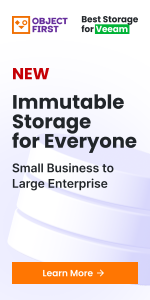Any CIO or CTO worth their salt is aware of containers, so it’s not surprising to see Gartner reporting that three-quarters of businesses want to have containerised applications by 2022. What is surprising, however, is that the same study says at present just 30% are using them – indicating businesses remain cautious about adoption.
One of the biggest reasons for this is that they are unsure about how they would manage and maintain a whole host of containers at the same time. Imagine you had to operate a warehouse – you would struggle to fulfil orders if you can’t ensure the shelves are stocked, items are picked, packaged correctly and dispatched. Just as warehouse managers tell staff to complete these tasks, containerisation requires an orchestration platform to create and move containers around to ensure smooth operation.
The Swiss army knife
Many, of course, are already aware of Kubernetes, the open-source orchestration platform that provides the means to easily deploy, update and manage containerised workloads with minimal downtime. In IT circles, Kubernetes is already big news, with the Linux Foundation claiming it played a major role in $65 billion worth of mergers, acquisitions and IPOs in 2018 alone. However, having only been open-sourced by Google in 2014, it is still considered as being ‘new’ by many businesses; some may feel it has not matured enough for them to consider, while others question whether they have the necessary in-house skills to exploit its potential. So exactly what can businesses expect Kubernetes to deliver, and how can they make it work in practice?
Like a Swiss army knife, it can perform a number of useful functions. First and foremost, it enables scalability: the platform automatically reacts to demand, managing shifting requirements, and keeping applications running in the desired state around the clock. Second, it also allows businesses to realise the portability benefits brought by containerisation in allowing applications to be interoperable across multiple on-premise, hybrid or public cloud environments.
Kubernetes can also auto-heal by identifying problems with workloads and can take action to converge them into the desired state – it gets services back up running automatically by taking restorative action through the reaping, moving and creation of new containers. Last but by no means least, it is also a cost-efficient way to manage containers, especially when paired with the pay-as-you-go offerings from major cloud providers which don’t require a big up-front investment.
Hitting the mainstream
While it’s a very useful tool, until recently Kubernetes was something of a ‘trade secret’ for IT teams. This shroud of secrecy has held back mainstream business adoption, but the tide is starting to turn because the word is getting out.
An abundance of successful use cases have elevated Kubernetes up to something C-suiters across the business are now aware of, and are keen to adopt. These are not small-scale projects either – take the NHS App which we recently worked on. Kubernetes can be particularly useful when dealing with high-traffic, high-security situations, so it’s proving a real game-changer for NHS Digital, which needed an app capable of handling more than 340 million annual GP consultations and 800 million repeat prescriptions across more than 7,500 GP practices.
In addition to this huge scale, the NHS also needed agility in its IT systems, changing the way services are delivered in line with the challenges posed by COVID-19. Running atop Microsoft Azure’s managed Kubernetes offering, the NHS App can quickly react to user demand in scaling from hundreds of requests one minute to hundreds of thousands the next.
The NHS isn’t alone in its use of Kubernetes, as growing healthcare force Babylon has also been using it to drive the use of AI and ML as the organisation continues to grow and looks to expand into other regions. Across a range of industries, right the way from big banks such as HSBC and ING to big-name media and entertainment brands such as Spotify and The New York Times, organisations are now beginning to feel the benefits Kubernetes can bring.
Closing the skills gap
Many businesses will grow more confident once they see that household names they trust are adopting Kubernetes and this will firmly enter it into the mainstream. However, this tide of Kubernetes does present a skills challenge as technical knowledge and suitability skilled engineers are already in short supply. From Site Reliability Engineering skills through to security, there are a range of areas that businesses need to build this expertise in before they can start using Kubernetes safely.
To close this skills gap, they need to focus on training graduates and domain users through specialised training schemes. Unfortunately, there’s no one quick fix: if businesses want to meet the increasing demand for developers who are able to build and deploy containerised apps, they need to upskill their workforce from the ground-up and be patient before the fruits of their labour finally arrive.
In the meantime, businesses can’t just sit and wait for these skills to develop, they need to seize the opportunity and get the ball rolling with Kubernetes, or risk losing ground to the competition. By working with a partner, they can adopt and enjoy the benefits of containerisation right away, while the necessary internal skills mature in the background. With the skills in place to get going, they will be in a prime position to reap the rewards of Kubernetes, using containers to transform the products and services they offer.
Photo by Ishant Mishra on Unsplash

Interested in hearing industry leaders discuss subjects like this and sharing their experiences and use-cases? Attend the Cyber Security & Cloud Expo World Series with upcoming events in Silicon Valley, London and Amsterdam to learn more.







